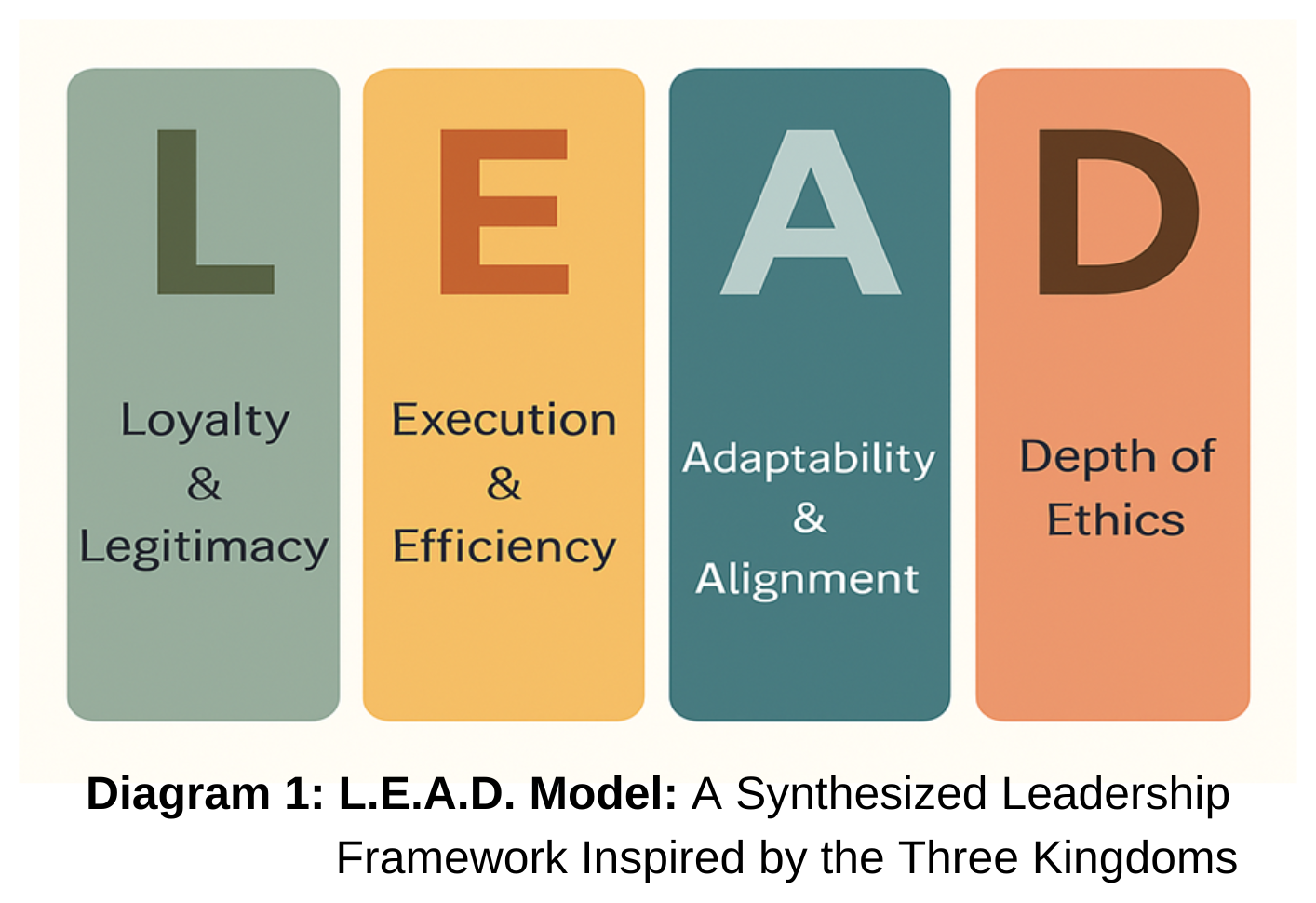Leadership of the Three Heroes of the Three Kingdoms : An Analysis of Ethics and Strategy
Keywords:
Leadership, Three Kingdoms, Ethics, StrategyAbstract
This academic article aims to analyze the leadership of three central figures from the Chinese historical novel Romance of the Three Kingdoms—Cao Cao, Liu Bei, and Sun Quan—through the conceptual frameworks of ethics and organizational strategy, in order to synthesize new insights into leadership models across different historical and cultural contexts. The study adopts an interpretive literary approach, using Romance of the Three Kingdoms: Thai translation by Chao Phraya Phrakhlang (Hon) as the primary source, alongside comparative ethical analysis grounded in Buddhist philosophy, Confucianism, and Daoism. The analysis reveals that Cao Cao represents strategic leadership focused on effectiveness and results; Liu Bei exemplifies virtuous leadership that emphasizes compassion, loyalty, and self-sacrifice; and Sun Quan embodies adaptive leadership that values balance, prudence, and stability in times of uncertainty. This article introduces the “L.E.A.D. Model,” comprising Loyalty and Legitimacy (L), Execution and Efficiency (E), Adaptability and Alignment (A), and Depth of Ethics (D), as a framework for understanding leadership in depth—particularly in volatile and complex environments. A comparative table of the three leadership models is also included, addressing their strategic orientations, ethical foundations, and relevance to transitional social and political contexts. These findings offer meaningful applications for contemporary leadership studies and practice.
References
เดชา โลจน์สิริศิลป์. (2555). การตัดสินใจภายใต้สถานการณ์วิกฤติ: พฤติกรรมผู้นำในพงศาวดารสามก๊ก. วารสารศิลปศาสตร์ มหาวิทยาลัยอุบลราชธานี, 8(1), 237–258.
สมเด็จพระพุทธโฆษาจารย์ (ป.อ. ปยุตฺโต). (2565). พุทธธรรม: ฉบับปรับขยาย (พิมพ์ครั้งที่ 44). กรุงเทพมหานคร: วัดญาณเวศกวัน (มหามกุฏราชวิทยาลัย).
สมเด็จพระพุทธโฆษาจารย์ (ป.อ. ปยุตฺโต). (2560). ธรรมของพระราชา (พระราชพิธีถวายพระเพลิงพระบรมศพ พระบาทสมเด็จพระปรมินทรมหาภูมิพลอดุลยเดช). นครปฐม: วัดญาณเวศกวัน.
เจ้าพระยาพระคลัง (หน). (2566). สามก๊ก ฉบับเจ้าพระยาพระคลัง (หน). (พิมพ์ครั้งที่ 3). กรุงเทพมหานคร: แสงดาว.
Bass, B. M. & Avolio, B. J. (1994). Improving Organizational Effectiveness through Transformational Leadership. Thousand Oaks, CA: Sage Publications, Inc. [Online]. Retrieved from: Improving Organizational Effectiveness Through Transformational Leadership - Google หนังสือ [3 July 2025].
Goleman, D. (2000). Leadership that gets results. Harvard Business Review, 78, 78–90. [Online]. Retrieved from: https://www.cdfifund.gov/system/files/documents/%28 51%29-leadership-that-gets-results.pdf?utm [2 July 2025].
Kotter, J. P. (2012). Leading change. Boston, MA: Harvard Business Review Press.
Laozi. (1963). Tao Te Ching (D. C. Lau, Trans.) [E book edition]. Penguin Books. [Online]. Retrieved from: https://archive.org/details/tao-te-ching_202406 [2 July 2025].
Thairoongrojana, S., & Junte, P. (2024). Mindful leadership: Integrating Buddhist ethics into contemporary organizational management. วารสารวิชาการสังคมศาสตร์สมัยใหม่, 1(6), 19–35.
Yukl, G. (2013). Leadership in organizations (8th ed.). Boston, MA: Pearson. [Online]. Retrieved from: https://archive.org/details/leadershipinorga0000yukl_k0v0Amazon +7 [3 July 2025].

Downloads
Published
How to Cite
Issue
Section
License
Copyright (c) 2025 Institute of Sufficiency Journal

This work is licensed under a Creative Commons Attribution-NonCommercial-NoDerivatives 4.0 International License.



